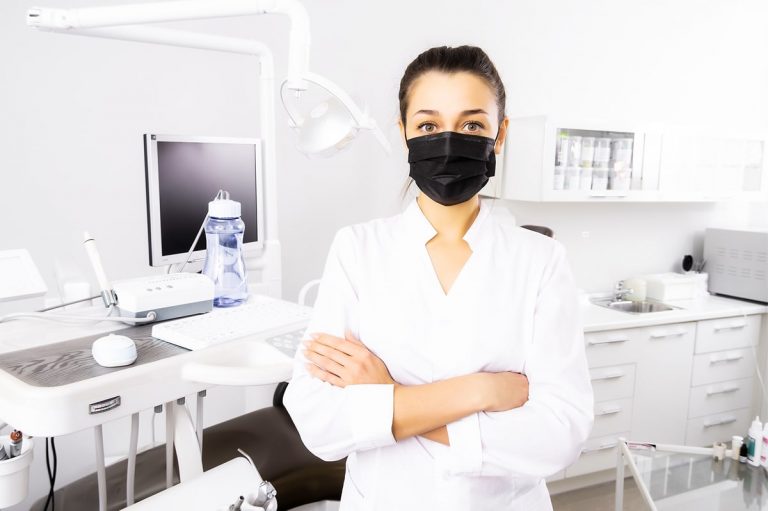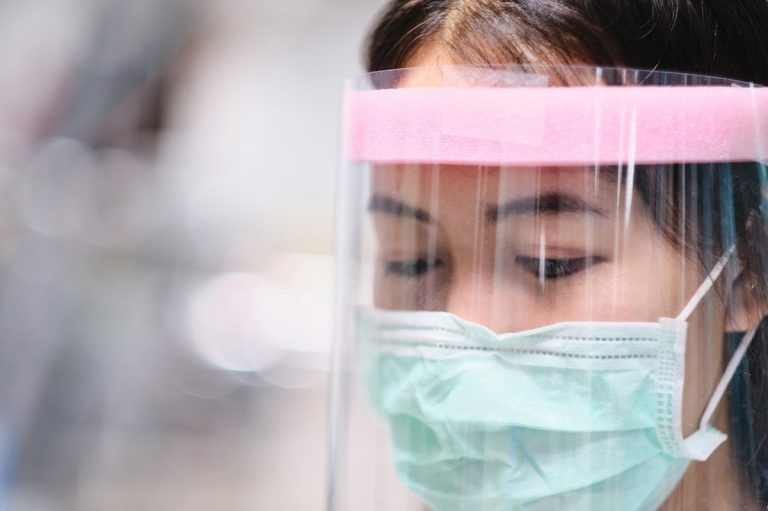COVID-19 causes a global public health crisis. Coronavirus leads to respiratory infections so that it can be transmitted through the droplets of saliva. When an infected person coughs or sneezes, the virus will be transmitted by respiratory droplets through the mouth or nose.
For this reason, most of the dental clinics are closed to avoid the spread of the Coronavirus. It is worth knowing that the dentist, the patient, and the staff are at risk of the virus. So, this question may be asked: “what to do if we are experiencing a dental emergency?”

Although most of the dental clinics are temporarily closed, you can meet your emergency dental needs. The emergencies are life-threatening, so that they require quick referral to the emergency dentist. If you are experiencing excessive and uncontrolled bleeding that does not stop, or you are suffering from severe pain, you should contact the emergency dentist immediately.
When Can You Visit the Emergency Dentist during COVID-19?
You have to hold off on routine dental visits. You may ask, “What are routine dental visits?” Routine dental visits are the dental appointments when you do not suffer from any pain, or you are not seeking dental treatment. They are known as elective procedures too.
You should limit the appointments to the emergency dental clinic during Coronavirus to slow the spread of infection. Therefore, procedures such as teeth whitening, teeth cleanings, removal of a non-painful tooth, and cosmetic procedures such as teeth whitening, veneer, halitosis (bad breath), crowns and bridges, and polish are rescheduled. You have to book the dental appointment for a later date.
When to contact and visit the emergency dentist?
If you are suffering from persistent bleeding, severe tooth or jaw pain, painful gum infection, avulsed tooth, or broken braces wire, you can contact the emergency dental clinic. The common dental emergencies are knocked-out tooth, broken or fractured jaw, and tooth pain. In emergency cases, you have to contact the emergency dentist to learn how to handle it until you get to the emergency dental clinic. When you refer to the dental clinic, you should follow the infection control precautions to limit the risk of transmission of COVID-19.
Professor Guillaume Dezecache, a social psychologist at France’s Université Clermont Auvergne, announces, ‘While we should in principle avoid people who are infected, there is a greater social force at play here: people are afraid, they seek contact with others, and this puts all of us at greater risk of infection.’

How to Prevent the Spread of Coronavirus?
You have to clean your hands regularly. Avoid touching your face. If you feel unwell, please stay home and follow the directions. Please, maintain a safe distance from the other people. Strict social distancing is the most effective strategy.
Professor Ophelia Deroy, an associate researcher at the Institute of Philosophy (IP) part of the University of London’s School of Advanced Study (SAS), declares, “Health organizations, governments, and local communities, need to act with an evidence-based picture of how humans respond under threat. They present social distancing as a ‘necessary renouncement’ and call upon civic conscience. What our conscience tells us is exactly the opposite: Help and seek contact.”
Ashish Jha, director of the Harvard Global Health Institute, announces, “This is how we get through this — together. If every state and every community fights to maximize its own ventilators, we’re all going to be in trouble. But if we can work in a coordinated way, we can get through it much easier.”
This article was provided by Walk-In Dental Clinic to give you the necessary dental information. All the content is strictly informational.
